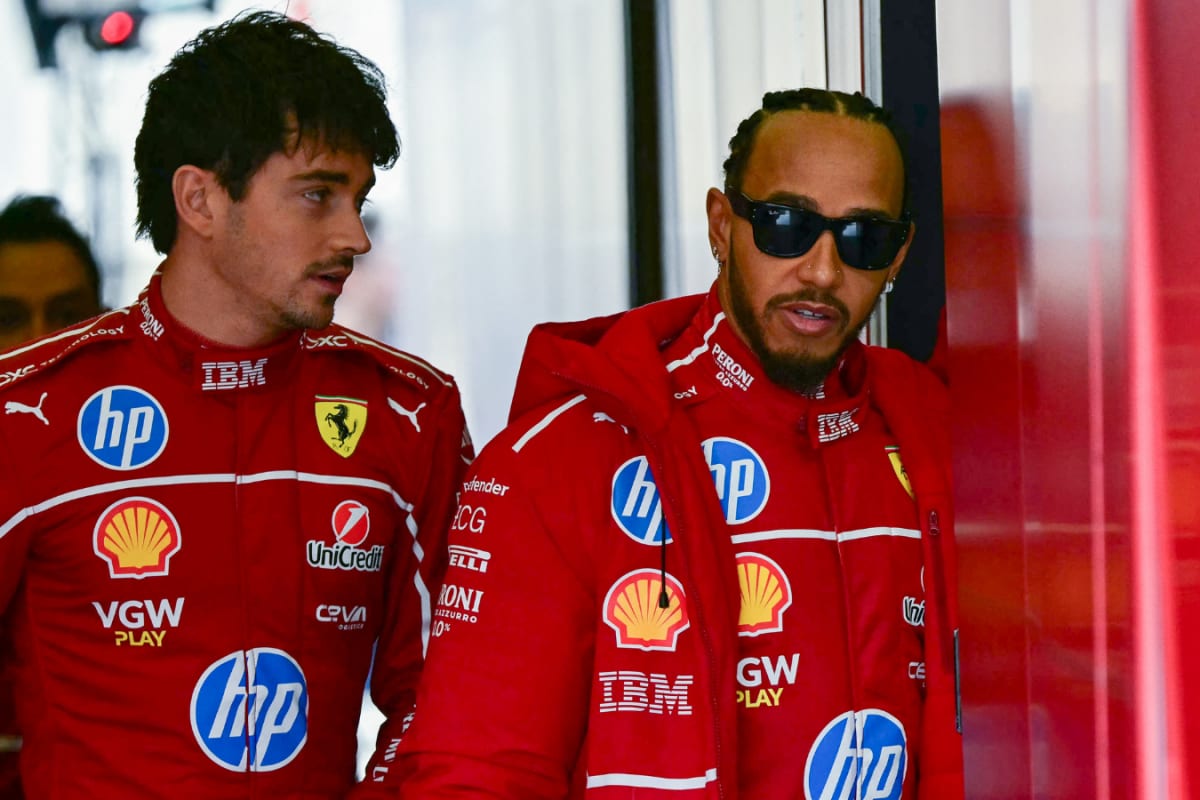

The Canadian Grand Prix has come and gone, leaving Ferrari facing harsh criticism after a weekend filled with mishaps and strategic questions. While Charles Leclerc and Lewis Hamilton managed to salvage fifth and sixth place respectively, the result hardly reflects the team's ambitions or potential, leading to renewed scrutiny of Ferrari's operations.
Former F1 champion, Nico Rosberg, didn't mince words when assessing Ferrari's performance, labeling it a "clumsy weekend." This sentiment encapsulates the series of errors and missed opportunities that plagued the team from Friday practice to the final lap. Leclerc's crash in FP1 put him on the back foot, forcing him to miss valuable track time in FP2. This setback had a ripple effect, impacting his qualifying performance and ultimately influencing race strategy decisions.
Adding to Ferrari's woes, Hamilton, in his debut season with the team, suffered damage to his car after hitting a groundhog, significantly reducing his downforce. Despite these challenges, Hamilton managed to secure a points finish, a testament to his skill and adaptability. However, the incident further compounded Ferrari's struggles, turning what could have been a competitive race into a damage-limitation exercise.
A key point of contention was Ferrari's strategy, particularly concerning Leclerc. The Monegasque driver openly questioned the team's decision to opt for a two-stop strategy, believing a one-stop approach could have yielded a better result. Leclerc's frustration was evident in radio communications, highlighting a disconnect between the driver's perception and the team's strategy calls. While Ferrari's engineers argued that a one-stop strategy was too risky given tire degradation, Leclerc felt he could have managed the tires effectively.
Ferrari Team Principal Fred Vasseur acknowledged the team's shortcomings, admitting that they "made too many mistakes." He pointed to Leclerc's FP1 crash, the qualifying mistake, and Hamilton's unfortunate encounter with a groundhog as key factors that hindered their performance. Vasseur also emphasized the importance of a clean and well-executed weekend, stating that Ferrari "failed massively in Canada" in terms of operational efficiency. He stressed that upgrades alone wouldn't solve Ferrari's problems, highlighting the need for internal improvements and better execution.
The Canadian Grand Prix exposed several underlying issues within the Ferrari team. From strategic disagreements to on-track incidents, the weekend highlighted a lack of cohesion and missed opportunities. While individual performances offered glimpses of promise, the overall result fell short of expectations, prompting criticism from both within and outside the team.
Looking ahead, Ferrari faces a crucial period of reflection and adjustment. Vasseur has hinted at upgrades for the Austrian Grand Prix, but the focus must extend beyond mere car development. Improving communication, refining strategy, and minimizing errors will be essential if Ferrari hopes to turn its season around and challenge for victories. The team needs to learn from the "clumsy weekend" in Canada and capitalize on its potential in the races to come. Only through a concerted effort can Ferrari silence its critics and return to the top step of the podium.